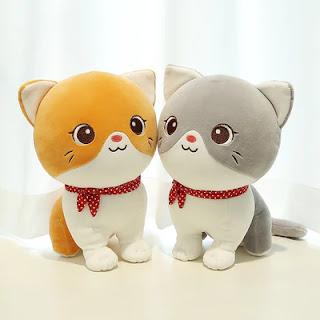The Ultimate Guide to Choosing Soft Toys for Kids: Tips and Recommendations
Soft toys are not just playthings; they are companions that can provide comfort and joy to kids of all ages. Choosing the right soft toy for a child involves considering various factors to ensure safety, durability, and suitability. In this ultimate guide, we'll discuss essential tips and recommendations for selecting soft toys that will bring smiles to children's faces.
Understanding the Importance of Safe and Durable Soft Toys
When choosing soft toys for kids, safety should be the top priority. Opt for toys that are made from high-quality materials and are free from potentially harmful chemicals. Look for certifications such as ASTM (American Society for Testing and Materials) or CE (Conformité Européenne) to ensure that the toys meet safety standards. Additionally, durability is crucial, especially for young children who may be prone to rough play. Soft toys that can withstand machine washing are ideal for maintaining cleanliness and hygiene.
Consider the Child's Age and Preferences
The age of the child plays a significant role in determining the most suitable soft toy. For infants, opt for plush toys with contrasting colors and different textures to stimulate their senses. Toddlers may enjoy soft toys that promote imaginative play, such as stuffed animals or dolls. As children grow older, their preferences may shift towards specific characters or themes from their favorite movies, TV shows, or books. Understanding the child's interests can help narrow down the options and choose a soft toy that will resonate with them.
Selecting the Right Size and Texture
The size and texture of a soft toys can greatly impact a child's experience. For infants and young children, choose soft toys that are lightweight and easy to grasp, promoting motor skills development. Textures such as smooth, plush, or fuzzy can offer tactile stimulation and sensory exploration. Consider the overall huggability of the toy, as a cuddly and squishy texture can provide comfort and emotional support to children during playtime and bedtime.
Educational and Interactive Soft Toys
Incorporating educational elements into soft toys can enhance a child's learning experience. Look for toys that feature interactive elements, such as buttons, zippers, or sound effects, to encourage sensory exploration and cognitive development. Soft toys that introduce letters, numbers, shapes, or language can also contribute to early childhood education in an engaging and playful manner.
Keyword: "soft toys for kids"
Promoting Imaginative Play and Emotional Development
Soft toys play a significant role in fostering imaginative play and emotional development in children. Dolls, action figures, and plush animals can become companions in storytelling, role-playing, and emotional expression. Encouraging children to interact with their soft toys can nurture empathy, creativity, and social skills, laying the foundation for healthy emotional development.
Conclusion
In conclusion, choosing the right soft toy for a child involves considering safety, durability, age-appropriateness, preferences, size, texture, educational value, and emotional impact. At Rinishoppe, we understand the importance of providing a diverse selection of high-quality soft toys that cater to the unique needs and interests of every child. Explore our collection of soft toys for kids and discover the perfect companions for endless playtime adventures.

Comments
Post a Comment